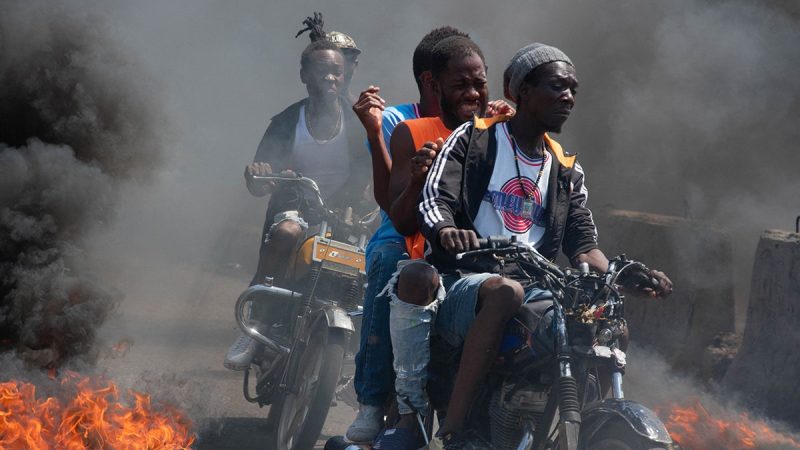As the Caribbean nation of Haiti grapples with escalating violence driven by rival gang factions, the implications of this conflict are reverberating beyond the country’s borders. The United States, in particular, is closely monitoring the situation as it presents significant risks to national security interests. The gang warfare in Haiti poses a direct challenge to the stability and security of the region, with potential spill-over effects that could impact the U.S. in various ways.
One of the foremost concerns for U.S. national security is the potential for Haiti’s instability to serve as a breeding ground for transnational criminal activities. With the breakdown of law and order in parts of the country, criminal networks may exploit the situation to expand their operations, including drug trafficking, human smuggling, and arms trafficking. These activities not only fuel violence and instability in the region but also have the potential to reach the shores of the United States, posing a direct threat to American communities.
Moreover, the power vacuum created by the ongoing gang warfare in Haiti could provide an opportunity for extremist groups to establish a foothold in the country. The proliferation of armed groups and the weakening of state institutions create fertile ground for radical ideologies to take root, potentially leading to the emergence of terrorist threats that could target U.S. interests or allies in the region. The U.S. government must remain vigilant and proactive in addressing these security challenges to prevent the escalation of violence and extremism in Haiti.
Another key aspect of the security risks posed by the situation in Haiti is the potential for mass migration and refugee flows. As violence and insecurity worsen in the country, the likelihood of large-scale displacement of Haitian civilians seeking safety and stability increases. This influx of refugees could strain neighboring countries and create humanitarian crises, with the U.S. likely to bear the brunt of the impact given its proximity to the region. Managing migration flows and providing assistance to those in need while safeguarding U.S. borders will be a critical task for policymakers.
Furthermore, the instability in Haiti amplifies existing governance and development challenges, which in turn can contribute to social unrest and political volatility in the region. The failure to address the root causes of the conflict, such as poverty, corruption, and inequality, not only perpetuates the cycle of violence but also undermines efforts to promote democracy and good governance in Haiti. A destabilized Haiti has the potential to become a regional hotspot that threatens the broader security interests of the U.S. and its allies.
In conclusion, the escalating gang warfare in Haiti presents significant risks to U.S. national security interests, with implications that extend beyond the borders of the Caribbean nation. Addressing the root causes of the conflict, supporting efforts to restore stability and security, and preventing the spread of criminal activities and extremism are paramount to safeguarding American interests in the region. The U.S. government must work in collaboration with international partners and regional actors to mitigate the security risks emanating from Haiti and uphold stability in the broader Caribbean area.

